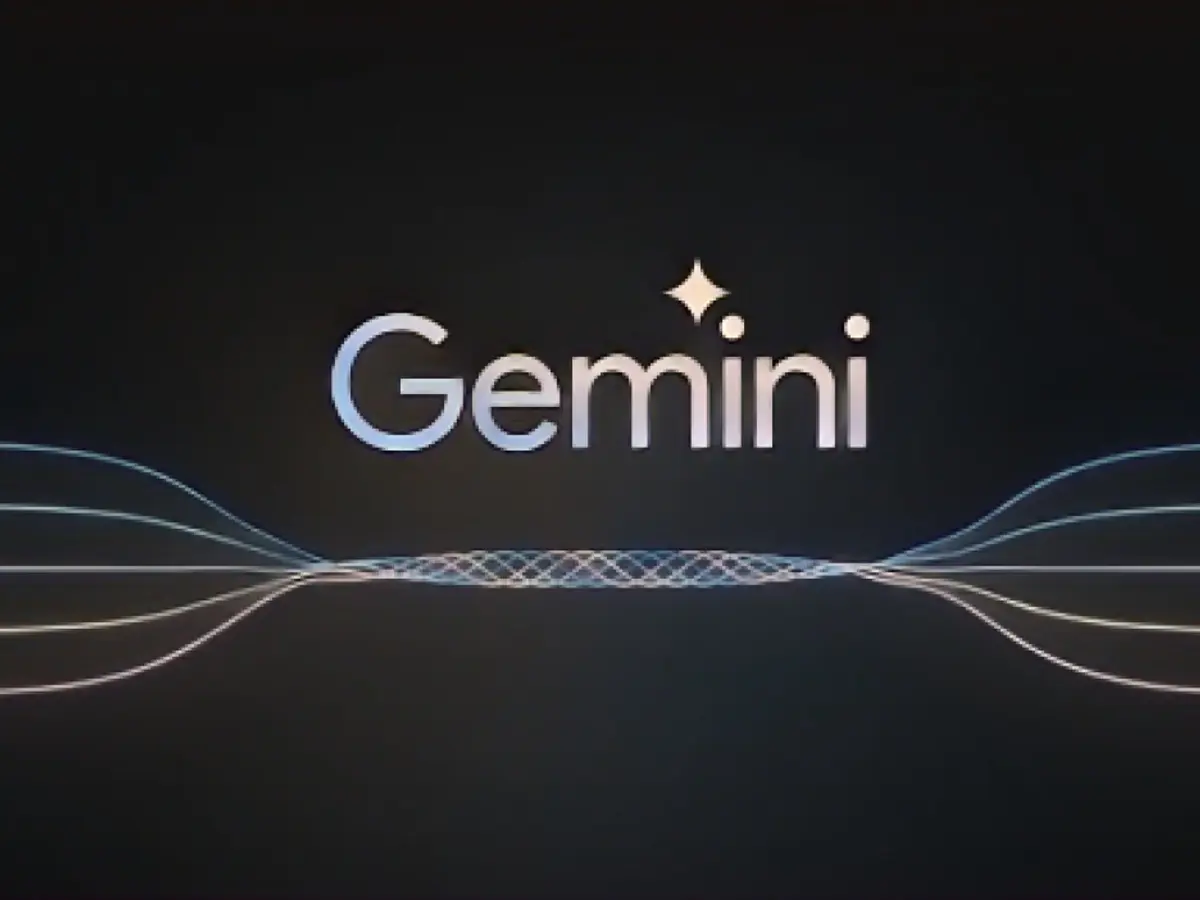Gemini: Google's Powerful Answer to GPT-4
Google's latest creation, Gemini, is its response to GPT-4, the powerful language model developed by OpenAI. With its reliable functions comparable to GPT-4, Gemini can be a confusing newcomer in the realm of AI chatbots.
What is Gemini?
Simply put, Gemini is Google's answer to GPT-4. Specifically, it serves as the underlying technology powering Google's AI chatbot. Unlike ChatGPT, you won't be able to simply visit Google's website and chat with Gemini. Instead, you'll need to use one of its three applications, which utilize the model's capabilities.
Who can use Gemini?
Anyone can use Gemini, but not like you might use ChatGPT. As mentioned earlier, Gemini is the technology behind Google's AI chatbot. So, you can't simply log onto the Google website and have a chat with Gemini. Instead, you'll need to use one of the following apps, which utilize Gemini's functions:
- Google's yet-to-be-released AI chatbot, Bard, which will showcase Gemini's upgrades.
- Wait for someone else to develop an application that utilizes Gemini's functions.
- Develop your own application to harness Gemini's capabilities.
Levels of Gemini
Google has released Gemini in three different versions, each tailored to specific tasks:
- Gemini Ultra - The most powerful and capable version of Gemini, designed for handling the most complex tasks that Gemini can manage. This version will likely serve as one of the primary choices for advanced KI chatbots and deliver the highest-performing next-gen capabilities.
- Gemini Pro - A scalable model capable of performing a broad range of tasks while also delivering leading-edge performance. This version is currently available in Bard and could be an excellent starting point for users looking to harness Gemini's capabilities.
- Gemini Nano - The most compact and efficient version, developed for small devices like smartphones. In the future, this version could be integrated into Google's Pixel 8 and Pixel 8 Pro models to enable advanced AI capabilities, enhancing the way we use our devices in the future.
How does Gemini stack up against GPT-4?
While Google positions Gemini as its answer to GPT-4, the gap between the two isn't as wide as you might think. According to some statistics provided by Google, here's how Gemini compares:
- On the MMMU-Benchmark (Multidisciplinary University Level Reasoning Problem), Gemini was able to achieve an accuracy of 59.4%, while GPT-4V achieved 56.8%. While the difference isn't significant, Gemini's performance puts some pressure on GPT-4 to improve.
It's important to note that a rivalry between Gemini and GPT-4 is beneficial for consumers. This competition will ensure both models continue to evolve and improve, hopefully outdoing each other in performance.
Limitations of Gemini
Like all AI language models, Gemini is vulnerable to hallucinations and misinformation. Google has yet to disclose any specific data regarding Gemini's relative accuracy, so it's always crucial to verify the information it provides before using it elsewhere. However, as AI models continue to evolve, we can expect that hallucination risks will become smaller, though it's unclear whether they will ever completely disappear.
When can I use Gemini?
If you're interested in developing with Gemini, Google plans to release both Gemini Pro and the Gemini API on December 12, with the option for Gemini Ultra to become available soon. Pricing details for Gemini have not been released yet. As users gain access to the models, more information about their roles and context restrictions may become available.
Read also:
Enrichment Data:
Google Gemini is a cutting-edge AI language model built by Google. Here's a closer look at its primary capabilities and features:
Key Capabilities and Features
- Multimodal Capabilities
- Text, Images, Audio, and Code: Gemini can understand and process content from various sources, including text, images, audio, and code.
- Efficiency and Scalability
- Device Compatibility: Gemini is designed to be efficient, allowing it to run on various devices ranging from powerful data centers to smartphones.
- Variety of Models
- Task-Specific Models: Google has developed several versions of Gemini, each optimized for specific tasks, including complex reasoning, general-purpose use, and fast, lightweight tasks.
- Enhanced AI Assistance
- Contextual Understanding: Gemini's advanced capabilities enable a Google AI Assistant to understand and respond to requests with better nuance and context.
- Improved Productivity
- Task Assistance: Gemini can help with various tasks such as summarizing documents, generating creative content, and code writing.
- New User Experiences
- Interactive Technologies: Gemini's multimodal capabilities could lead to new ways of interacting with technology, such as voice, images, or videos.
- Integration with Google Products
- Google Search: Expect more informative and comprehensive search results.
- Workspace Apps: Gemini is being integrated into Gmail, Docs, Slides, and other Workspace apps to enhance productivity.
- Advanced Features in Gemini 1.5 Pro and Gemini 2.0
- Increased Context Window: Gemini 1.5 Pro and Gemini 2.0 have a context window of up to 2 million tokens, allowing for the analysis of lengthy documents, books, codebases, and videos.
- Improved Performance and Context Understanding: Enhanced performance across various tasks like translation, coding, and reasoning.
- Advanced Support for Multimodal Data Processing: Improved support for text, images, audio, and video processing, including native audio understanding and video analysis from linked external sources.
- Enhanced Function Calling and JSON Mode: Gemini can produce JSON objects as structured output from unstructured data and has enhanced function calling capabilities.
- Customization and Integration: Users can create customized versions of the Gemini AI (Gems) tailored to specific tasks and personal preferences. It also integrates seamlessly with Google’s suite of services, including Search, YouTube, and Maps.
- Gemini Live Enhancements
- Multimodal Capabilities: Gemini Live can analyze and respond to user-uploaded images, files, and YouTube videos during conversations.
- Chained Actions: Users can accomplish complex tasks without switching between apps manually by chaining actions across integrated apps like Google Maps and Messages.
- Project Astra
- Real-World Interactivity: Project Astra aims to merge AI with real-world interactivity by leveraging a phone’s camera to answer questions about the user’s surroundings, including historical details about monuments or arrival times of buses.
- Code Analysis and Generation
- Code Analysis: Gemini understands application development code, analyzing entire codebases, suggesting improvements, explaining code functionality, and generating new code snippets.
- Content Generation: The model can generate a variety of text formats, including blog posts, news articles, emails, and creative writing, with near-human accuracy.
- Audio Processing
- Transcription and Analysis: Gemini can transcribe, analyze, and extract meaning from audio files, including speech, music, or background sounds.
- Flash Thinking in Gemini 2.0
- Structured Problem Decomposition: Gemini 2.0 features "Flash Thinking," which includes structured problem decomposition, transparent thought processes, enhanced accuracy in handling complex queries, and real-time information retrieval and integration.








